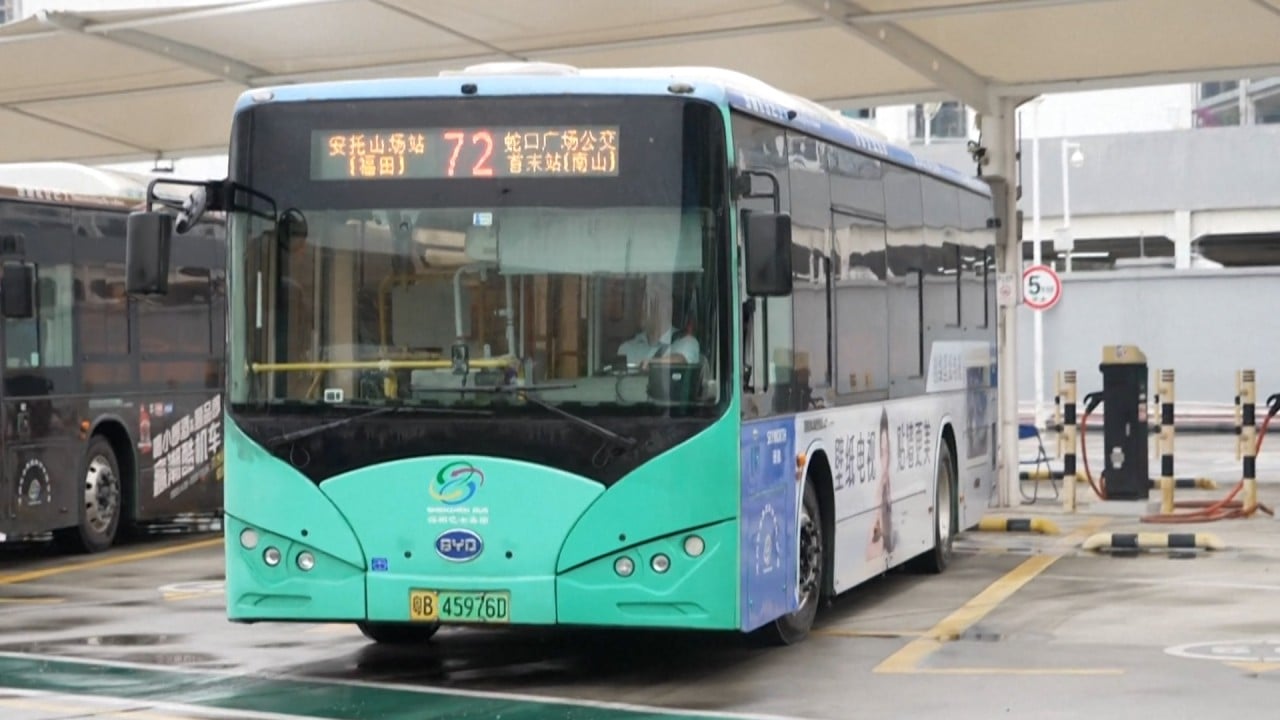
Someday soon China might dominate the hydrogen supply chain too
- EU and US manufacturers already complaining about Chinese competition in solar power and electric vehicles won’t like China’s hydrogen policy
- China is already the top producer of hydrogen, and as it moves to produce more of it using renewable energy, hydrogen could become an important part of the world’s low-carbon future
Underpinning the conflict is the imperative to reduce carbon emissions, slow global warming and hit net zero targets by 2050. So far, most progress has been made in the energy sector, with the breakneck development of wind and solar power, and in transport, as electric vehicles and the batteries that power them begin to capture a significant share of the global vehicle market.
Yes, hydrogen is starting to be a realistic contributor to purging fossil fuels from power generation and transport, but most important, it is opening the way to tackling previously intractable sectors – replacing fossil fuels in steel, cement and in the manufacture of industrial chemicals like ammonia and methanol.
Controversy has so far been subdued for two main reasons. First, China has confined its attention to hydrogen use within the country, rather than as an export opportunity. And second, China has for more than a decade been the world’s leading producer of hydrogen – not out of any green imperative, but because it is indispensable at the heart of its huge chemicals industry.
Today, China accounts for 30 per cent of global hydrogen supply, about 33 million tonnes, and 30 per cent of hydrogen consumption. It also accounts for half of the world’s supply of the electrolysers needed to produce hydrogen.
But this has been a problem rather than an opportunity, because two-thirds of China’s hydrogen is brown - produced from coal gasification and emitting huge amounts of carbon in the process. Only if produced using renewable energy can it play a useful role in our battle against global warming, but only about 1 per cent of China’s hydrogen counts as green hydrogen.
However, the explosion of China’s wind and solar power generation – most of it in the remote dry interior of Inner Mongolia and Xinjiang – is poised to change all that.
In short, China is poised to exert significant influence on the global hydrogen market just as demand is set to explode in efforts to slow global warming. It already has the world’s leading hydrogen-making infrastructure. It is generously endowed with renewables like wind and solar power which can facilitate the transition from brown to green hydrogen.
Hydrogen demand has already exploded at home as demand for green vehicles surges – in particular for heavy trucks and buses for which current EV batteries are not yet sufficiently powerful. And most important, it is home to a large proportion of the world’s fossil fuel-intensive heavy industries spanning steel, chemicals and cement, in which hydrogen can play an important role in eliminating fossil fuels.
According to a fascinating study from the Paris-based Institut Montaigne: “China is biding its time, by waiting for two things. First, learning from others, such as the EU and Japan, to learn from their experience with green hydrogen policies. Second...waiting for its own market players to be ready to compete with equal level technologies on the global market.”
At present, its electrolysers are cheaper than those produced in Europe, but use inferior technology and are less efficient. Its domestic pipeline infrastructure is currently tiny. Its unclear standards could prevent it from being allowed to compete in many foreign markets, at least for now.
Climate action: how China is accelerating the drive towards a net zero world
But the future competitive challenge is clear. With the critical mass of its own market of 1.4 billion, state-owned enterprises focused on infrastructure development, fierce competition between large numbers of local manufacturers of electrolysers and fuel cells, targeted subsidies from national and regional governments, and a large number of foreign joint venture partners contributing to innovation, there is a certain inevitability that China will soon be recognised as a dominant global force in the hydrogen economy.
It is likely to play a critical role in decarbonising the world’s markets and helping us to meet our net zero targets. Whether China’s competitors in the hydrogen economy see it this way is another matter.
David Dodwell is CEO of the trade policy and international relations consultancy Strategic Access, focused on developments and challenges facing the Asia-Pacific over the past four decades



